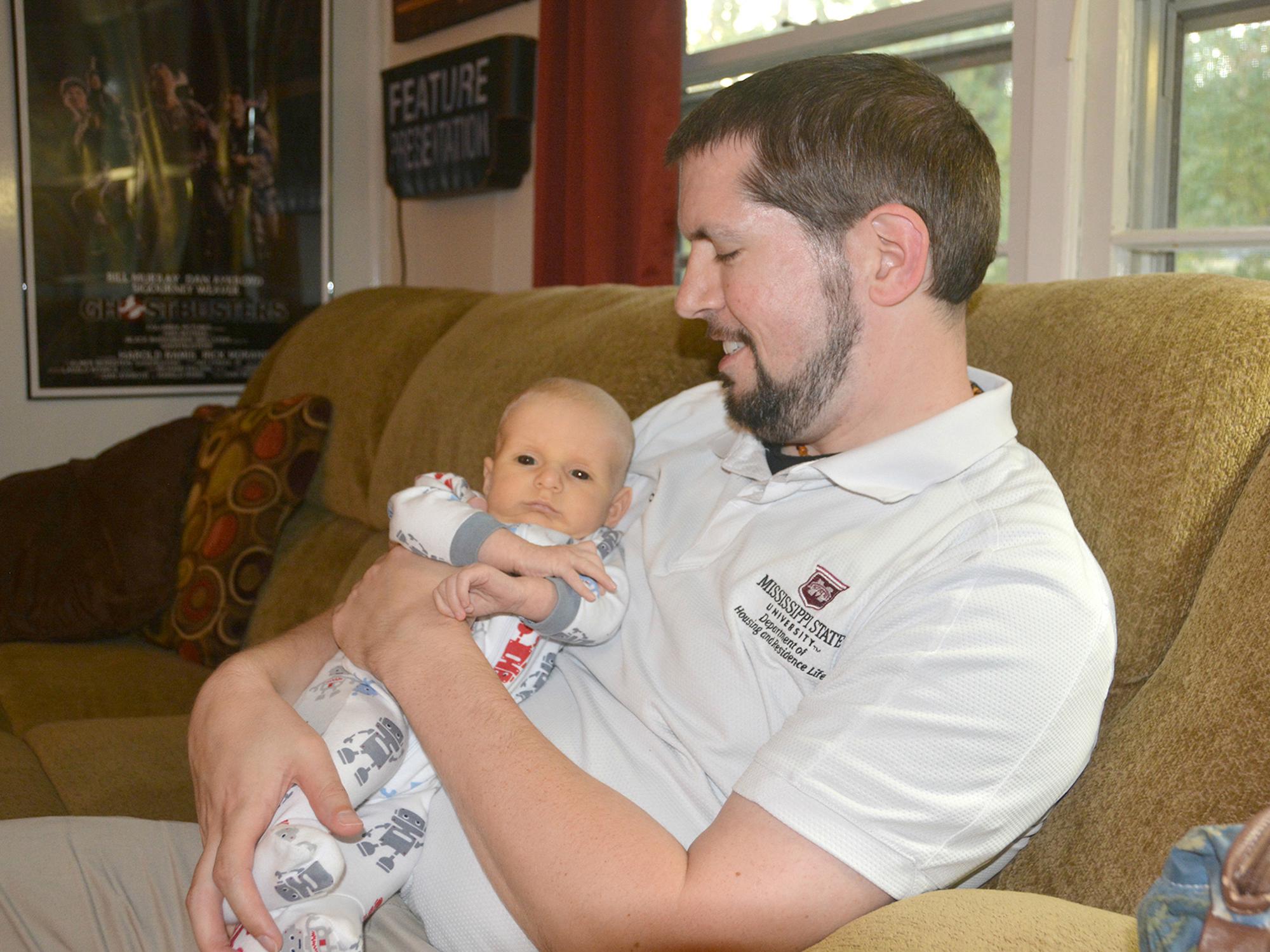Information Possibly Outdated
The information presented on this page was originally released on November 1, 2016. It may not be outdated, but please search our site for more current information. If you plan to quote or reference this information in a publication, please check with the Extension specialist or author before proceeding.
Fathers still can bond with breastfed babies
STARKVILLE, Miss. -- The choice to breastfeed babies does not remove fathers from nurturing duties that create strong bonds with their children.
Hannah Lambey, a dietetic intern with the Mississippi State University Extension Service, said a father can significantly impact the mother and baby just by doing a few simple things.
"Breastfeeding centers around the relationship between the mom and baby, sometimes leaving dad feeling left out," Lambey said. "Dads have many other bonding opportunities that are just as important for both the mother and child."
Fathers are important advocates and supporters for moms who want to breastfeed. They may need to provide extra support in the hospital, at doctor visits or at home, especially with family and friends who want hands-on time with the baby.
“Paternal support is especially important with first babies if mothers are unsure of themselves and dealing with all the emotions that can come with having a new baby,” she said. “When mothers are trying to provide the healthiest option for their babies, they don’t need criticism or doubts from others.”
Lambey said fathers are the first lines of defense and support for mothers.
“The dads’ words and actions are important for helping moms and babies adjust to their new world,” she said. “Dad’s attitude greatly impacts how long, or even if, mom will breastfeed.”
Breastfeeding can be exhausting because it requires a lot of time and energy from mothers. Once easy responsibilities can become overwhelming.
“Supportive fathers may assume more activities around the house in general or may choose roles specific to the babies’ needs,” Lambey said. “Bringing the baby to mom for feeding or burping the baby afterwards are easy ways to be a part of the process. Changing diapers, preparing meals and cleaning duties are also activities that must be done.”
Lambey said from the earliest days, babies can benefit from skin-to-skin contact with fathers, much like they do from mothers.
“In time, dads can feed babies breastmilk from a bottle,” she said. “The key is waiting until the breastfeeding relationship between mom and baby is well established before introducing bottles, which is usually at 4 to 6 weeks of age. If bottles are introduced earlier, babies may get confused and have problems breastfeeding.”
Boone Purser of Starkville is enjoying his third breastfed baby. He said he has never felt left out of the nurturing experience because feeding is only one component of bonding.
“Some of the things that I have done to bond with my breastfed children is to hold and walk around with them when they were not feeding, play with them on the floor, let them sleep on my chest, and be responsible for bathing and prepping them for bed,” Purser said.
Purser said he and his wife were in agreement on the decision for her to breastfeed their children.
“At first, our families were uneasy about the experience, but we did not make a big deal about it, and they eventually came around,” he said. “We just want to provide the best and healthiest food option for them and believe breastfeeding is the best route.”
David Buys, health specialist with the MSU Extension Service, said with all the benefits of breastfeeding, all families should be eager to adopt the practice.
“Research suggests that breastfed children are less likely to become overweight or obese when they are older,” he said. “Breastfeeding also has been shown to be associated with better performance on intelligence tests later in life.”
Mothers also experience health benefits.
“Some studies indicate a decreased risk of breast cancer and ovarian cancer,” he said. “Many breastfeeding women experience a quicker weight loss after pregnancy.”
Buys said Mississippi has one of the lowest rates of breastfeeding mothers in the nation.
“Anything fathers and extended family members can do to encourage breastfeeding could help us change that health statistic,” he said.





